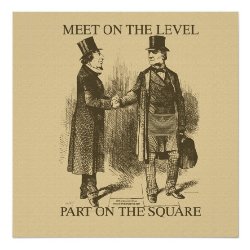- Are they too good to be true?
 I've read a lot of resumes in my day. Coming from the Information Technology sector I have seen some pretty crazy ones filled with a lot of gobbledygook involving technical acronyms and programming jargon. Here's an example, "Proficient in the following languages and operating platforms: C, C++, DOS, MVS, CICS, ISPF/VS, DB2, OS/2, OS/400, UNIX, AIX, Java, JavaScript, Perl, Basic, HTML, DHTML, XHTML, XML, PHP, PDP, JCL, SQL, George 3, Win95/98/Me/XP/VISTA, etc." Sounds pretty impressive doesn't it? The problem is verifying that the person does, in fact, know these things. Most of the time I've found they might have nothing more than a rudimentary knowledge of the subject which is why we recommend testing the applicant as opposed to just taking his/her word for it.
I've read a lot of resumes in my day. Coming from the Information Technology sector I have seen some pretty crazy ones filled with a lot of gobbledygook involving technical acronyms and programming jargon. Here's an example, "Proficient in the following languages and operating platforms: C, C++, DOS, MVS, CICS, ISPF/VS, DB2, OS/2, OS/400, UNIX, AIX, Java, JavaScript, Perl, Basic, HTML, DHTML, XHTML, XML, PHP, PDP, JCL, SQL, George 3, Win95/98/Me/XP/VISTA, etc." Sounds pretty impressive doesn't it? The problem is verifying that the person does, in fact, know these things. Most of the time I've found they might have nothing more than a rudimentary knowledge of the subject which is why we recommend testing the applicant as opposed to just taking his/her word for it.
I also find it irritating when a person uses verbose language to describe himself. For example, whenever someone says they are a "Senior Software Engineer," this simply means he is nothing more than a programmer with two or more jobs under his belt. Some people add so many adjectives to describe their credentials and boast of their successes (not their failures) that you would think he is the second coming of Christ. Whenever I see this, I ask myself, "If this person is so great, why isn't he running his own company; why does he need a job from me?" Touting ones' successes is natural, but a little humility in the presentation of the resume would sure be refreshing.
I may not be an expert in preparing resumes, but I think the ones that appeal to me most are those that are simple and to the point. Frankly, if they cannot keep it to one page that isn't too busy looking, I think people will lose interest. I know I do. If I want additional detail, I'll ask for it. Tell me plain and simple: What are you interested in doing? What's your background? (your employment history) and What do you know? (your skill set). I don't want to know how you conquered neuro-electronic fusion systems based on a hashing algorithm you invented; do not try to baffle me with your brilliance. Just tell me how you can do a job for me and blend into the corporate culture. I think team accomplishments are still valued over individual achievement by most employers today.
Just remember if the person's resume seems too good to be true, in all likelihood it is.
Originally Published: 1/19/2009
Keep the Faith!
Note: All trademarks both marked and unmarked belong to their respective companies.
 Tim Bryce is a writer and the Managing Director of M&JB Investment Company (M&JB) of Palm Harbor, Florida and has over 30 years of experience in the management consulting field. He can be reached at timb001@phmainstreet.com
Tim Bryce is a writer and the Managing Director of M&JB Investment Company (M&JB) of Palm Harbor, Florida and has over 30 years of experience in the management consulting field. He can be reached at timb001@phmainstreet.com
For Tim's columns, see:
timbryce.com
Like the article? TELL A FRIEND.
Copyright © 2014 by Tim Bryce. All rights reserved.
NEXT UP: CELEBRATING THE 16TH AMENDMENT'S ANNIVERSARY - But are we getting tired of being the whipping boys for irresponsible government spending.
LAST TIME: OUR GOVERNING DOCS - The written instruments used to govern and shape America.
Listen to Tim on WJTN-AM (News Talk 1240) "The Town Square" with host John Siggins (Mon, Wed, Fri, 12:30-3:00pm Eastern), KGAB-AM 650 "The Morning Zone" with host Dave Chaffin (weekdays, 6:00-10:00am Mountain), and KIT-AM 1280 in Yakima, Washington
"The Morning News" with hosts Dave Ettl & Lance Tormey (weekdays. 6:00-9:00am Pacific). Or tune-in to Tim's channel on YouTube.

 I have always worked in a small business environment, but I have visited enough big companies as part of my consulting practice over the years to recognize differences between large and small. One such difference is how large conglomerates cultivate managers.
I have always worked in a small business environment, but I have visited enough big companies as part of my consulting practice over the years to recognize differences between large and small. One such difference is how large conglomerates cultivate managers.
 Have you ever noticed there doesn't seem to be a lot of trust anymore? We tend not to trust our government, our companies, our coworkers, the media, our neighbors. Heck, we're even suspicious about the motives of our own relatives. It wasn't always like this. We used to openly trust people and never feared political back stabbing. Alas, no more. We used to leave our house and cars unlocked; even going so far as to loan a friend a car with no questions asked. Again, no more. When we delegated a task or responsibility to someone, we knew it would be completed properly. No more.
Have you ever noticed there doesn't seem to be a lot of trust anymore? We tend not to trust our government, our companies, our coworkers, the media, our neighbors. Heck, we're even suspicious about the motives of our own relatives. It wasn't always like this. We used to openly trust people and never feared political back stabbing. Alas, no more. We used to leave our house and cars unlocked; even going so far as to loan a friend a car with no questions asked. Again, no more. When we delegated a task or responsibility to someone, we knew it would be completed properly. No more.
 In the many years I have been a member, I have always found it fascinating how people perceive the institution of Freemasonry. Some say it is a club, others see it as a philanthropy, but very few seem to understand the concept of fraternity. Further, when we investigate candidates for membership, we normally ask what they are looking for, but rarely do people comprehend precisely what they are joining. This is a compelling argument, one I've debated on more than one occasion.
In the many years I have been a member, I have always found it fascinating how people perceive the institution of Freemasonry. Some say it is a club, others see it as a philanthropy, but very few seem to understand the concept of fraternity. Further, when we investigate candidates for membership, we normally ask what they are looking for, but rarely do people comprehend precisely what they are joining. This is a compelling argument, one I've debated on more than one occasion.
 When we started our company years ago we relied heavily on "Cold Calls," initial telephone contacts with prospective purchasers of our products. To do so, we carefully created a list of potential candidates, rehearsed a speech, and made the call. Actually, it wasn't quite that simple. We spent considerable time researching company backgrounds by geographical regions, including it's financial standing (thanks to Forbes, and Standard & Poors directories). As we are in the systems business, we were very much interested in the type of computer hardware and software they used which we found through various computer related directories. Finally, we located the main contacts by job title, such as "MIS/IS Director" and "Systems Manager" (this was well before the advent of such titles as "I.T."). If we knew people familiar with the candidates, we would contact them first as a pre-investigation. In other words, we did our homework in order to locate the most qualified candidates, thereby maximizing our chances for success. Only then would we make the call.
When we started our company years ago we relied heavily on "Cold Calls," initial telephone contacts with prospective purchasers of our products. To do so, we carefully created a list of potential candidates, rehearsed a speech, and made the call. Actually, it wasn't quite that simple. We spent considerable time researching company backgrounds by geographical regions, including it's financial standing (thanks to Forbes, and Standard & Poors directories). As we are in the systems business, we were very much interested in the type of computer hardware and software they used which we found through various computer related directories. Finally, we located the main contacts by job title, such as "MIS/IS Director" and "Systems Manager" (this was well before the advent of such titles as "I.T."). If we knew people familiar with the candidates, we would contact them first as a pre-investigation. In other words, we did our homework in order to locate the most qualified candidates, thereby maximizing our chances for success. Only then would we make the call.
 By now, we're all pretty much convinced morality is suffering in this country due to the erosion of the family unit and decline of organized religion. Many believe a social change is in the offing; that such things as same-sex marriage is now considered normal, cheating and deceit are commonplace, and Judeo-Christian beliefs are no longer in vogue. Not so fast. During this past holiday season, the Gallup organization published a couple of interesting polls challenging these assumptions.
By now, we're all pretty much convinced morality is suffering in this country due to the erosion of the family unit and decline of organized religion. Many believe a social change is in the offing; that such things as same-sex marriage is now considered normal, cheating and deceit are commonplace, and Judeo-Christian beliefs are no longer in vogue. Not so fast. During this past holiday season, the Gallup organization published a couple of interesting polls challenging these assumptions.
 Be afraid, be very afraid! They're back! No, I am not talking about zombies but rather the MBA hotshots who are once again invading corporate America. This is the group who caused havoc in the 1980's by cutting and slashing everything in sight, all in the name of productivity. In the process, they did considerable damage to the corporate psyche. Let me give you an example.
Be afraid, be very afraid! They're back! No, I am not talking about zombies but rather the MBA hotshots who are once again invading corporate America. This is the group who caused havoc in the 1980's by cutting and slashing everything in sight, all in the name of productivity. In the process, they did considerable damage to the corporate psyche. Let me give you an example.
 I have been around nonprofit organizations of all kinds for several years. I don't know about you, but I have found far too many in decline due to such things as apathy, lack of relevance, or just bad public relations. Regardless of the reason, when membership declines, the first knee-jerk reaction by the powers that be, is to raise the price of dues. Again, I am reminded of the old expression, "Rearranging the deck chairs on the Titanic." Instead of applying energies to fixing the hole, officials decide to shackle more weight on the passengers. I never understood the logic of such action.
I have been around nonprofit organizations of all kinds for several years. I don't know about you, but I have found far too many in decline due to such things as apathy, lack of relevance, or just bad public relations. Regardless of the reason, when membership declines, the first knee-jerk reaction by the powers that be, is to raise the price of dues. Again, I am reminded of the old expression, "Rearranging the deck chairs on the Titanic." Instead of applying energies to fixing the hole, officials decide to shackle more weight on the passengers. I never understood the logic of such action.
 I want to tell you about my recent trip to Mars. Actually, this is just my initial sketch as I hope to write much more in the coming weeks.
I want to tell you about my recent trip to Mars. Actually, this is just my initial sketch as I hope to write much more in the coming weeks.
 We're coming down to the wire for the District 13 Republican Congressional primary to replace the late Congressman Bill Young, which will be held January 14th. Three candidates are vying to challenge Democrat Alex Sink - Mark Bircher, David Jolly, and Kathleen Peters. To make a comparative analysis, I contacted the three candidates and asked three simple questions. I wasn't so much interested in their resume or list of supporters as this is already known. Instead, I wanted to get their perspectives on the problems facing Pinellas voters, why they feel they are the best challenger, and their impression of the Democratic opponent, Alex Sink.
We're coming down to the wire for the District 13 Republican Congressional primary to replace the late Congressman Bill Young, which will be held January 14th. Three candidates are vying to challenge Democrat Alex Sink - Mark Bircher, David Jolly, and Kathleen Peters. To make a comparative analysis, I contacted the three candidates and asked three simple questions. I wasn't so much interested in their resume or list of supporters as this is already known. Instead, I wanted to get their perspectives on the problems facing Pinellas voters, why they feel they are the best challenger, and their impression of the Democratic opponent, Alex Sink.